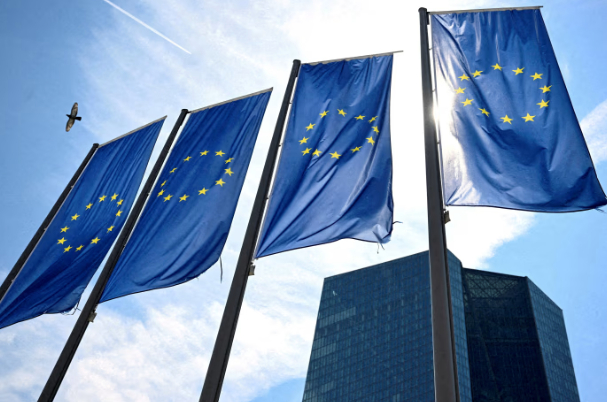
In July 2025, the EU once again increased its oil trade sanctions against Russia, attempting to weaken Russia's war budget and curb its military operations in the Ukrainian conflict through a new round of measures. This move is both the EU's response to Russia's continued military operations and an economic war full of complex games. However, in the tug-of-war between sanctions and counter-sanctions, the challenges and contradictions faced by the EU have become increasingly prominent.
The European Commission's latest proposal is to reduce the upper limit of Russian oil prices from $60 per barrel to $45, thereby significantly reducing Russia's energy export revenue. According to regulations, if the transaction price of Russian oil exceeds the upper limit, the EU will prohibit related shipping, insurance and financial services, cutting off its global trade chain. In addition, the sanctions plan continues to retain pipeline oil import exemptions for landlocked countries such as Hungary, Slovakia and the Czech Republic, allowing them to maintain Russian oil supplies through the Druzhba pipeline. This compromise reflects the differences in energy dependence within the EU: landlocked countries are highly dependent on Russian pipeline oil, while coastal countries can reduce risks through alternative sources. Although this move has maintained superficial unity, some member states have questioned the fairness of the "discounted version" of sanctions, believing that the exemption has greatly reduced the effectiveness of sanctions.
The EU's move is aimed at cutting off Russia's "war funding chain." Data shows that Russia's energy exports account for more than 40% of its fiscal revenue, and the continued consumption of the Ukrainian conflict has forced Russia to rely on energy revenue to maintain its military spending. However, the double-edged sword effect of sanctions is still significant: the EU's own energy costs remain high, inflationary pressure continues, and the burden on people's lives has increased. In addition, internal differences are difficult to bridge - Poland accuses Hungary of using exemptions to obtain low-priced oil, while the Czech Republic is worried that sanctions will increase industrial costs. The contradiction between political games and economic realities has put the EU in a dilemma between "tough sanctions" and "pragmatic compromise."
Faced with a new round of EU price limits, the Kremlin has long been prepared. Russia evades sanctions by diverting oil to non-price-limited markets such as India and China, or through "transit trade" through refineries in third countries. For example, Indian refineries process Russian oil and then sell finished oil to Europe, forming a "gray trade chain." In addition, Russia has increased its energy cooperation with Asian countries, promoted the "turn to the east" strategy, and weakened its dependence on the European market. At the same time, the United States took the opportunity to expand its energy exports to Europe: between 2022 and 2025, the United States' crude oil exports to the EU doubled, and energy companies' profits set a record. The reconstruction of the energy market brought about by sanctions has provided business opportunities for some countries.
The EU's oil sanctions are essentially a political game. Its core goal is not only to weaken Russia's financial strength, but also to show the international community a "unity against Russia" attitude. However, the real dilemma cannot be ignored: if the price ceiling is too low, it may trigger Russia's production cuts and lead to turmoil in the global energy market; if there are too many compromises, it will be difficult to actually hit the Russian economy. In addition, the "domino effect" of sanctions may spread-if more member states seek exemptions, the EU's sanctions system may collapse. Ukrainian President Zelensky once admitted that the pace of European sanctions has slowed down slightly, and Russia is accelerating its adaptation.
The EU's new oil sanctions are a contest full of paradoxes. While attacking Russia's war budget, Europe itself is bearing the cost of energy crisis and economic stagflation; under the guise of maintaining political unity, internal contradictions and disputes over fairness are surging. In the future, can sanctions really cut off Russia's financial lifeline, or will they further promote the division and reorganization of the global energy landscape? The answer may depend on whether the EU can find a balance between "toughness" and "pragmatism", and whether Russia can successfully open up new energy export routes. The losers and winners of this sanctions game are not yet clear, but its far-reaching impact on international politics and economy has already emerged.

According to the foreign media The Verge, recently, Tesla CEO Elon Musk's goals in the field of fully autonomous driving (FSD) have once again fluctuated.
According to the foreign media The Verge, recently, Tesla C…
In early 2026, Greenland along the North Atlantic coast bec…
Recently, the century-old American high-end department stor…
Recently, the U.S. stock market has appeared turbulent amid…
Recently, the largest private equity firm in South Korea, M…
In early 2026, after the Trump administration detained Vene…